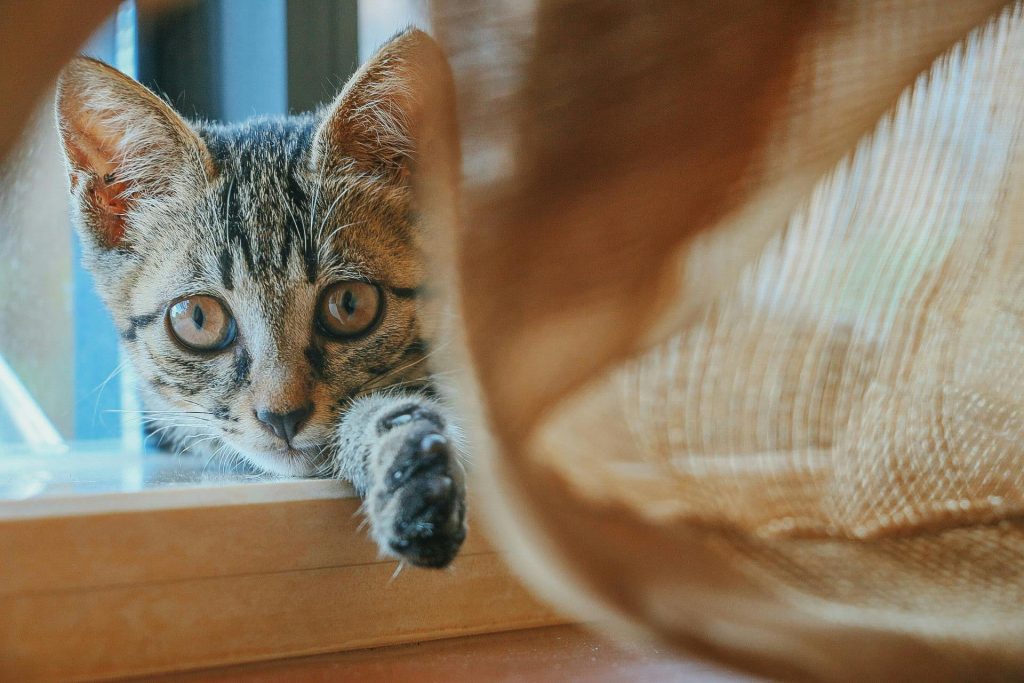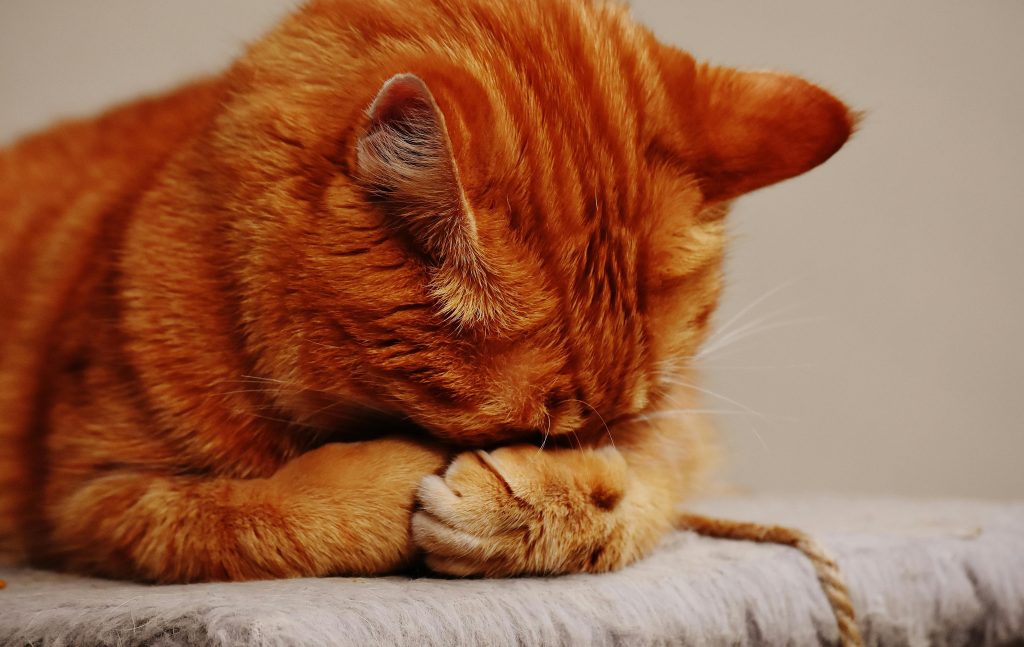Table of Contents
Have you ever noticed your cat behaving strangely and wondered what might be causing their unease?
You’re certainly not alone in this; just like humans, our feline companions can experience stress, often triggered by unexpected factors, so understanding these stressors can empower you to foster a more serene and joyful environment for your beloved pet.
1. Changes in Routine

Cats are inherently creatures of habit, and any disruption to their established routines—whether it’s a new work schedule, an upcoming vacation, or even a simple change in their feeding times—can quickly send them into a state of anxiety and distress.
This delicate balance, which they rely on for comfort and security, can be easily upset by even the slightest shifts in their daily lives.
How to Help
To help your cat feel more secure, ensure that feeding times are consistent and strive to uphold a predictable daily routine that mimics their habits.
If you anticipate being away for an extended period, hiring a pet sitter can be an excellent way to maintain their schedule and provide them with familiar care during your absence.
2. Loud Noises
While you may thoroughly enjoy the excitement of a lively concert or the dazzling spectacle of fireworks, your cat is likely to feel quite the opposite, as sudden loud noises can genuinely frighten them and result in significant stress and anxiety.
It’s essential to recognize that what brings you joy can be overwhelming for your feline friend, highlighting the need for a calm and peaceful environment during such events.
How to Help
Consider setting up a serene retreat for your cat in your home, such as a cozy bed tucked away in a quiet corner, where they can escape when the noise becomes overwhelming.
Additionally, during particularly loud events, playing soft music or utilizing white noise can significantly help mask the sounds and create a more tranquil atmosphere for your feline friend.
3. New Family Members

Changes in the family dynamic can significantly stress your cat, such as introducing a new pet or a baby, making them feel threatened or uncertain about their role within the household.
This disruption may lead them to seek comfort in familiar spaces as they navigate their shifting environment.
How to Help
To help your cat adjust to new family members, it’s essential to gradually introduce these changes, allowing plenty of time for your feline friend to acclimate to the evolving household dynamics.
Additionally, creating safe spaces where they can retreat if they feel overwhelmed, combined with ample positive reinforcement such as treats and gentle petting, will significantly alleviate their anxiety and promote a sense of security.
4. Unfamiliar Scents
Cats depend significantly on their acute sense of smell, meaning that even the slightest introduction of a new scent in their environment—whether it be from a recently used cleaner or the unfamiliar fragrance of a guest’s perfume—can easily disorient and unsettle them.
The olfactory changes can create confusion, making them feel uneasy in their own space.
How to Help
Maintaining consistency in your home environment to create a comfortable atmosphere for your cat, particularly regarding the cleaning products and scents you use.
If you find it necessary to introduce a new product, take your time with the process by allowing your cat to investigate and sniff it out gradually before incorporating it into your routine fully.
5. Cluttered Spaces

While it might seem like your cat enjoys cozy, cluttered spots, an overly busy or cramped environment can lead to stress and make them feel overwhelmed.
Keeping their space organized and free of too much clutter helps them feel more secure and comfortable.
How to Help
Maintaining a tidy living environment is essential, as it helps keep the space pleasant for you and your cat and allows for designated areas where your feline friend can comfortably explore or unwind.
Additionally, incorporating several open spaces throughout your home will create an inviting atmosphere, giving your cat ample room to roam freely without feeling trapped or overwhelmed.
6. Lack of Stimulation
Cats may enjoy long, luxurious naps throughout the day, but they also require ample mental and physical stimulation to thrive and maintain their well-being.
Without engaging in activities and a stimulating environment, your feline friend could become stressed, which may result in unwanted and destructive behaviors.
How to Help
Consider investing in a variety of interactive toys, such as feather wands or puzzle feeders, which can not only stimulate your cat’s natural instincts but also provide endless entertainment.
Additionally, dedicating time each day to engage in playful activities with your feline companion will not only help keep their minds sharp but also allow them to burn off excess energy in a fun and healthy way.
7. Sudden Changes in the Environment
A new home, renovations, or even moving furniture can significantly impact your cat’s sense of security, as they thrive on familiar surroundings, and any drastic alterations to their environment can lead to heightened anxiety and uncertainty.
It’s essential to recognize that these changes can disrupt their comfort, making it crucial to provide them with a stable and consistent space to help ease their stress.
How to Help
When moving to a new home, it’s best to keep your cat in a quiet room away from the chaos to minimize their stress and help them feel safe.
After you’ve settled in, prioritize setting up their designated space first, allowing them to have a familiar area amid the new environment, and then gradually introduce them to the rest of the house at their own pace.
8. Lack of Safe Hiding Spots

When feeling stressed, cats instinctively seek out safe spots where they can retreat and find comfort.
Without access to a secure hiding place, they may experience heightened anxiety and unease, leading to further distress in their environment.
How to Help
To ensure your cat feels secure and comfortable, it’s essential to provide a variety of cozy hiding spots throughout your home that cater to their instincts.
Options like cat trees, cardboard boxes, or even a quiet corner tucked under a bed can serve as perfect sanctuaries, offering your feline friend a haven to retreat to whenever they feel overwhelmed by their surroundings.
Creating a Calm Environment for Your Feline Friend
Recognizing the various factors that may stress your cat is crucial for fostering a sense of security and happiness in their life, allowing you to be more attuned to their emotional needs.
By addressing these surprising stressors and dedicating a bit of time and care to your furry friend, you can create a tranquil environment where they truly thrive, keeping those soothing purrs coming your way.

Hi, I’m Zoey, a devoted mom to two charming Siamese cats. My passion lies in assisting fellow pet owners in providing optimal care for their cats. On CatsEuphoria, I share practical tips and relatable stories, inviting you to join me in appreciating the authentic bond between humans and our beloved feline companions.




